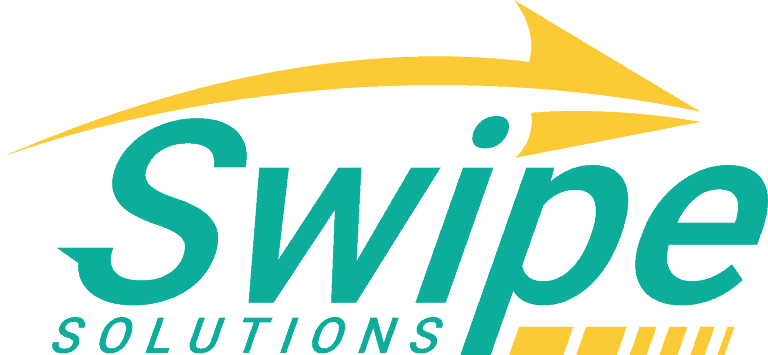Personal Loans Vs. Payday Loans (What Everybody Ought To Know)
When you and I face unexpected expenses, we often search for loans. People who are homeowners and have considerable equity can use a home equity loan or refinance the home to obtain money. However, people who do not have that advantage must think about short-term loans. Payday loans and personal loans are two common solutions. To better understand which choice makes more sense, we recommend learning the basics of each option and the key differences between them.
What Are Personal Loans?

Personal loans that people seek to cover unexpected expenses are unsecured and have shorter terms than mortgages. Unsecured means that they are not guaranteed by offering any collateral or assets to ensure repayment if a borrower defaults. People often use personal loans to replace heating or cooling systems that break, pay for emergency dental work or pay for major car repairs. However, you and I may use the funds for many other reasons.
Advantages of Personal Loans
- Flexible Terms
One of the main benefits of personal loans is that they often have some flexibility in repayment terms. For example, a borrower may want a term of five years instead of two to have more affordable monthly payments. Lenders are often willing to offer longer terms since the loans come with interest. - Can Apply With A Cosigner
For those who have poorer credit scores or credit history, personal loans are still attainable with the help of a cosigner. This is a person who signs the loan contract as a responsible party in the event that the main borrower defaults and cannot repay the loan. You and I can ask close friends or family members to be cosigners when necessary. - Fixed Interest Rate
Another great benefit of a personal loan is a fixed interest rate. Most loans come with relatively low rates if the borrower has decent credit. A fixed rate offers peace of mind for budget planning since it means a consistent payment amount each month. - Potential To Improve Your Credit Score
When borrowers repay loans as agreed, they also enjoy the benefit of an improved credit score. Although a credit score may temporarily drop after a person applies for a loan and adds a new account, the score may eventually rise even higher as the payments are made on time and the loan is completed as agreed. However, the individual must practice good repayment habits on other accounts as well during this time.
Disadvantages of Personal Loans
- Not The Faster Way To Get A Loan
For people who want a good credit loan fast, a personal loan may not seem ideal because of the approval period. While some lenders offer speedier approval processes today, approval can take several days while a lender verifies a person’s creditworthiness. If the borrower can wait, this investigation period is actually beneficial since it means that the borrower will get the best possible interest rate. - Stricter Qualification Requirements
Qualification requirements are stricter with personal loans. People who have poor credit or too high of a debt-to-income ratio may be rejected. Also, those who have acceptable or fair credit and still gain approval may face higher interest rates. In these instances, it may be better to use a credit card for an unexpected expense. While most people qualify for rates that are lower than the average credit card rate, this is not true with every person and every lender.
What Are Payday Loans?

When people need money fast or are looking for a bad credit loan, they often search for payday lenders. A payday loan is designed to provide a modest sum of money instantly for someone who cannot afford an immediate expense but can afford it after the next paycheck. In this type of arrangement, a borrower uses a paycheck as a form of collateral or guarantee. The lender gives the borrower the money and simply collects the paycheck via direct payment or through voluntary repayment from the borrower. Customers often rate their experiences highly because of how easy the process is. For example, a person with poor credit will not feel embarrassed about having bad credit if there is no credit check to worry about, and that person is more likely to report a positive experience because of those feelings. However, borrowers should understand payday loans thoroughly to avoid getting into a serious and expensive debt trap.
Advantages of Payday Loans
Fast Approval Time
The biggest advantage is the quick approval time. Most borrowers are approved within an hour to a day depending on the lender and how the company operates. With fast approval, this also means quick funding. Some lenders promise to provide funds the same day or within 24 hours. While some may take up to a few days depending on certain circumstances, borrowers almost always have the money in their hands in under a week.
No Credit Check
One of the reasons why people feel comfortable with the application process is because they do not have to submit extensive amounts of personal information. This is because there are no credit history or credit score verification requirements.
Easy Approval Requirements
If a person has a job or a verifiable source of steady income, approval is almost guaranteed. People who are self-employed or those who have unreliable sources of income may find it more difficult to get even a bad credit loan. However, there are some lenders that work with people who are self-employed or have alternate sources of income. As a rule, most payday lenders require the past two check stubs from an employer, photo identification and basic contact information for approval.
Disadvantages of Payday Loans
High Fees
The hefty fees associated with payday loans are the biggest disadvantage. To lessen the perceived impact, lenders assign short loan terms. There is usually a set fee or percentage of the face value of the loan. The rules vary from one state to another for maximum loan repayment terms and fee amounts. For example, some states may allow a fee of up to 30 percent of the loan’s total value. If the loan is for $500, this means that a fee of $150 is added. There may also be other lenders’ fees.
Low Loan Amounts
Additionally, most states set a maximum loan amount. It may be a percentage of gross monthly income, the value of the upcoming check amount or a state-set minimum. Most loan caps are set between $500 and $1,000. For people who need more, this will not provide enough funds, and many states do not allow two payday loans to be taken out at the same time.
High APR
Since the repayment terms are short, the percentages may not seem as high to borrowers who desperately need money. However, when those same rates are translated into annual percentage rates, the expenses of payday loans are more apparent. Rates vary in each state depending on regulations. For example, the average APRs for payday loans in Nevada, Delaware, South Dakota and Wisconsin are each above 500 percent. Colorado has the lowest with an APR just below 130 percent. Since the rates and terms are so unfavorable with these types of loans, some states such as Vermont, Maryland and several others do not allow them at all.
Short Term Repayment
Payday lenders may allow rollovers or extensions if their state’s law allows them. In some states, the maximum term is a month with no rollovers. Repayment terms may be as long as a few months in other states. There are usually fees for rollovers, and borrowers may wind up paying a hefty percentage of the remaining balance. People often use rollovers because they cannot afford to repay their loans. If a person barely survives from one paycheck to the next, it can be hard to repay the loan in a short amount of time. When a borrower defaults on a payday loan, it is treated as a default and becomes a blemish on a credit report.
Key Differences Between Payday Loans and Personal Loans
Different Rules And Regulation
One of the main differences between these two types of loans is the lenders. Traditional lenders have a much different set of regulations that they must adhere to in every state. Payday lenders may be regulated by the same entities but typically have different rules. Also, payday lenders are not backed by credit unions, banks or other major underwriters that require a credit analysis for approval.
Standard Requirement Vs Personalized Credit Analysis
A person who does not qualify for a good credit loan may still gain approval from a regular lender. However, the interest rate may be much higher. When a regular lender uses a credit analysis, the loan amount, rate and terms are personalized based on the applicant’s unique information. With payday loans, the requirements are more standardized and apply to all. For example, imagine that you and I apply for payday loans. One of us has decent credit but needs money immediately, and one of us does not need the money immediately but has terrible credit. If state law limits the fees to 30 percent of the loan value and each person borrows $500, both applicants will pay the same fees or interest regardless of their differing credit profiles. The reason why regular lenders are flexible with interest rates is because they determine risks based on credit information.
Approval Process Is A Key Difference Between These Two Types Of Loans
Payday loans can be approved immediately while traditional loans take time. Also, traditional loans require more personal information such as a Social Security number, financial information and possibly tax information. Payday lenders mostly require identification and two recent pay stubs or the name of an employer.
To better understand the differences in financial impact between these two types of loans, consider the following summary points:
- Payday loans are usually between $500 and $1,000 while personal loans may be between $1,000 and $50,000.
- Traditional loan interest rates often range between five percent and 35 percent while payday loan fees range between $10 and $30 per $100 borrowed.
- Repayment terms for payday loans are usually 14 to 30 days while terms for personal loans may be between two and five years.
Are There Other Alternatives?
Thanks to the internet, there are other ways for people to raise money quickly. If one friend or family member cannot lend the amount needed for an emergency, a person may be able to start an online crowdfunding campaign to share on social media. Some people find medical grants or other short-term funding options for medical expenses. Utility companies may set up payment arrangements, and car lenders may be willing to defer one or two payments.
If you are looking for loan options and cannot get approved for a personal or installment loan, think about these options before you sign the papers for a payday loan. This is especially important if your finances are normally tight. You may also be able to open a credit card with a small limit that will cover the expense, and you may find that option more affordable.
Fortunately, you do not need excellent credit today to qualify for a personal loan. If you can wait for the approval period, there are plenty of potential lenders who can help you and may be more lenient than traditional banks or credit unions. Whenever possible, we encourage you to find lower-interest loans that provide some flexibility to ensure that your repayment plan is affordable and that you are not strapped with high fees or interest.
Let Us Help You Find A Personal Loan
When you’re ready to take the plunge and ask for the loan you need, we can help you through the process. Click here to apply now.
LEAVE A COMMENT: Why would you apply for one loan over the other?



